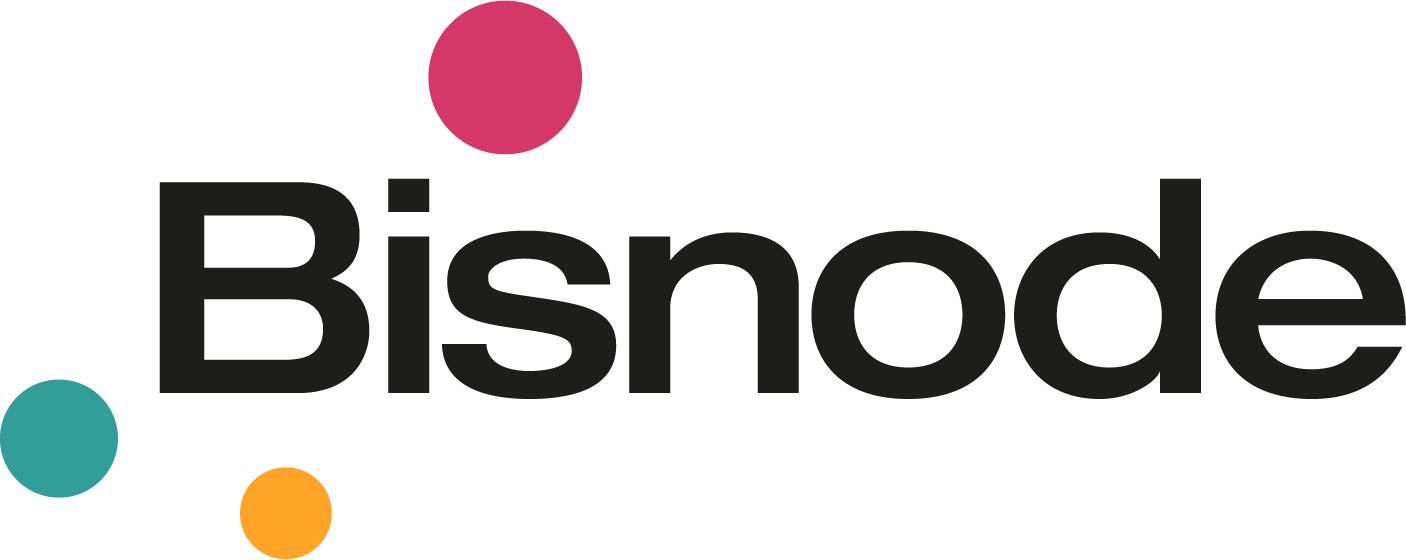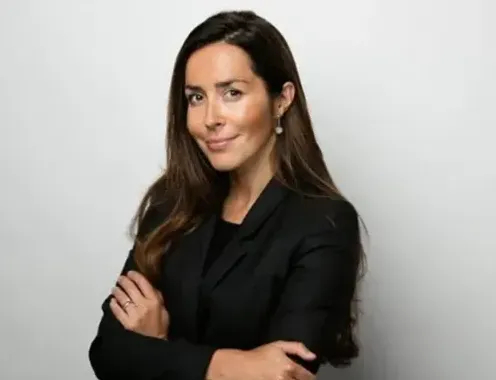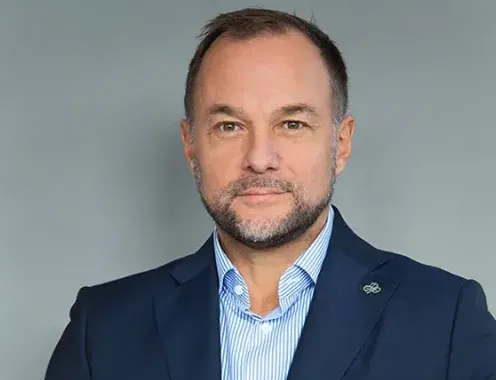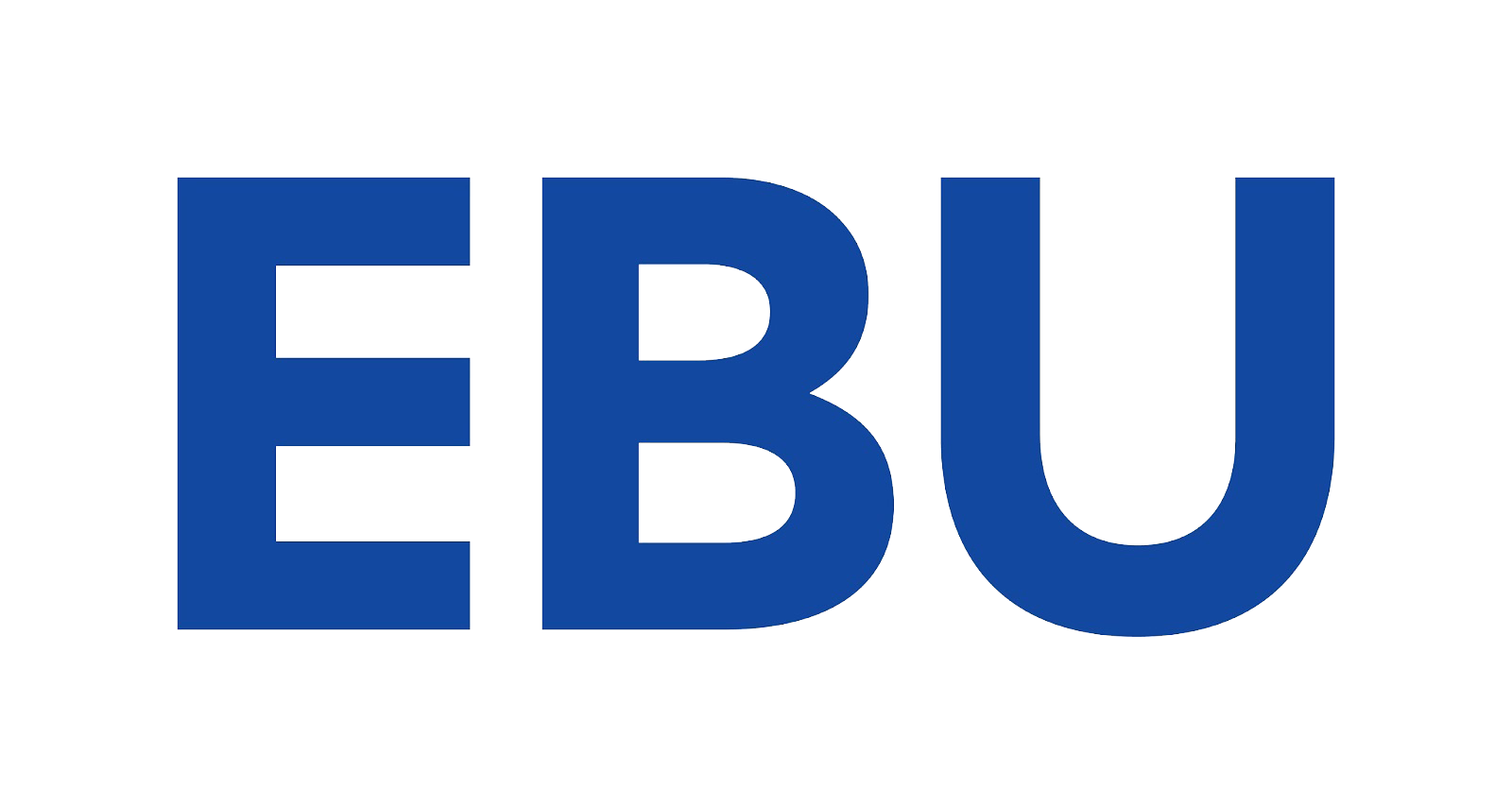Executive Interviews
Our Executive Interviews feature top leaders from across the disciplines that we specialise in, sharing their career advice and experience with candidates seeking success in those sectors.

Reto Eberhard - Head of General Ledger - Audatex (Schweiz) GmbH - Solera Group
What would you say are the advantages of living and working in Switzerland?
Well, for me, especially if you look at the area of Lucerne to Zurich, it’s the smallest capital in the world, so, what I enjoy here, actually compared to London or New York, it’s the living standards, so you have fantastic public transportation, you have a lot of cultural things going on, for a more or less ok price and the kindergartens, the schools, the universities, are close by and they are state-of-the-art from an education point of view, so for me, it’s the way of living here – it’s easy and secure.
Yes, a lot of people have moved over because of all of these advantages that Switzerland has to offer.
Yes, this is true. It always depends on the company that you’re working for, so when you’re working for an International company, they can be straightforward and quite hard with their staff, so this is not the unique point in Switzerland, you don’t have the security, like you have in Germany, for example. This is a disadvantage. But, the job market, more or less, is quite good. So when you lose your job, and you’re up with your education, it is easier to find another job, an equivalent job, so this is good. You are still able to choose what you want to do.
That’s great. What challenges do you think are ahead for the Swiss economy over the next 5 years?
The strong Swiss franc. The Head Office is right now under the pressure of 1 franc, 1 euro. When they started in Switzerland, it was 1 - 1.50, and even the dollar was at 1.2; now it’s around .95, so you had an automatic increase in costs for International companies. This is certainly a challenge – how to speed up with their own process to make it cheaper, to make it faster and slimmer. The other point is that Switzerland has to keep up the pace of innovation – Switzerland is known for all sorts of innovation – that‘s why the economy is so strong so this also has to keep the pace.
How have you seen individuals have reacted to the challenges with the Swiss franc?
Local people, surprisingly enough, love it, because there is easy shopping in Europe, or vacations become a lot cheaper, so they are not really frightened of how it harms our own economy. Further to that, what Switzerland has to seek going forward, we have to start to train out own experts – you look at the health industry - 60-70% of people working in the health industry are people from abroad, so here, we have to grow from the inside as well to train the people. To offer them standard salaries – why a lot of foreigners are coming to Switzerland because the salaries are already high – so we have to train the people. Health is the biggest market coming up for Switzerland as well, since also the population is getting older. I’m one of the baby boomers and we are now coming to retirement age, and we need health, people looking after us – this is a big challenge also for the economy.
How have you seen the role of Finance change over the last 10 years?
The biggest change is the fast growth of information needs, so you want to look at your results from all sorts of aspects: by area, by product code, by the smallest item possible, so in Finance, that means that all these numbers have to be imported with downloads, and not any more with posting as in the old days, manually, so you have a lot of interfaces to maintain. The other part is that it grew in SOX controls, written controls and formalised controls; this was not the case 10 years ago. It started about 10 years ago, but now, it is state-of-the-art –everything you do has to be supported, has to carry on the correct signatures, otherwise it will end up in a deficiency and so, this is much stronger than it was 10 years ago.
What would you say the biggest challenge is for companies based in Switzerland in the current market?
For Swiss-based companies, it’s still the strong Swiss franc – this is certainly one of the biggest ones. For the local companies, it’s the tax benefits foreign companies receive when they move to Switzerland – they have this tax advantage for 5 to 10 years, which the local companies don’t have any more, so they feel the pressure there.
What would you say is the best piece of advice you could give someone who is just starting out in their career in Finance?
I love finance. Finance for me, is a mirror of the company – you see everything when you are working in Finance – all the money coming in, all the expenses, so you know what’s going on. Starting a finance career you have to plan, normally when you are around 22. Sometimes, you make a career by luck, but others make a career by planning. This is always a question when you have interviews: ‘where do you want to be in 5 years or 10 years?’ I recognise that a lot of people, they say something because they have to – they are trained to say something – but they don’t feel it in their heart. Try to gain a profound knowledge, rather than start to work as an AP, better start off in a small company where you are responsible for the whole process. They are exactly the same processes that you will see in even the biggest companies, but when you are head of there or you’re managing the accountants, then the door is actually open to apply for jobs in bigger companies, so plan it.
So does it make out harder to find people in general, do you think?
Today, to recruit people with process knowledge, this is quite hard, because normally, they are starting at bigger companies – they are doing their education in bigger companies, so they are always only doing little parts of the job. Once you really understand the process, how it goes, how you’re factoring, how you’re billing, how you get the signatures, the whole process in one and you do it for 2-3 years, this is knowledge that you will always be able to use.
From your point of view, what’s the best piece of advice that you’ve been given to date?
To say no. When you are asked to do things, especially in today’s environment, say no. Sometimes management asks you to do postings without the accurate supporting documentation, say no. When you are unhappy, change. When you don’t feel right in your position, or even in your life, when you don’t feel happy, change it. We are lucky, that in Switzerland, we are in the position, economically, for the time being, to say no to a job and go on in life and in career.
*Views and opinions contained within our Executive Interviews are those of the Interviewee and not views shared by EMEA Recruitment.*


Cynzia Nardiello - CFO - Barry Callebaut Schweiz
Looking back through your established career, what would you identify as a personal highlight?
I have worked for very dynamic and multicultural companies so I am lucky to have had many highlights! When I was a Finance Manager for Alfa Romeo I was the only woman at the time working at this level in the business globally and I was also very young. It was a big challenge as I took over from someone who gave up after 3 months despite his experience, so I was asked to take on the role as they needed someone with personality. The position was in the UK and at the time I did not even speak the language! The role was a great success and I was later asked to become CFO for Mazerati.
My current position is also a big challenge, where we are really driving costs in production and purchasing. I had slowed down in my career and taken on the role as a mother, however, my young daughter is now 4 years old and last year I decided it was time to focus on my career again. An opening became available at Barry Callebaut due to a maternity leave and this has given me the chance to step up again.
If you could go back and give your younger (graduate) self some career advice, what would it be?
My advice to any graduate would be to gain international experience, seeing different countries and companies. It is a great opportunity to learn and gain respect for other cultures. It is important not to forget your individuality, but you need to be open minded. All of my highlights have been linked to international experiences, including projects I have been involved in in Russia and South America. This is really how you differentiate yourself.
What advice would you give to ambitious women who are aspiring to reach senior leadership roles?
My advice to anyone aspiring to senior leadership roles would be to never give up, but women need to make an extra effort. You really need to have belief!
When interviewing candidates at an earlier stage in their career what are the common mistakes you see and what advice would you give?
A lack of enthusiasm and preparation. I need to see ‘the drive’ in the person, why are they interested in the job or the company? There is sometimes a lack of direction and you are searching for the personality.
What are your personal motivators, particularly when working in a high pressure role?
My family is of course a strong motivator and also it helps that my husband is in a similar role, so his opinion is always important. We do not always speak about work, but if I have a concern they we can talk it through. I am a very motivated person anyway and I enjoy working, but it is important for your family that you are also satisfied.
What would you say is the most rewarding part of your role?
Being able to support management and profitability, the numbers are always important! Providing financial support where you can see how this effects commercial decisions and drives the direction of the business is really rewarding.
You have worked for Barry Callebaut since the end of 2007, what excites you about working for the business?
I started in the company working in the cocoa division, so I saw the source of the raw material and now I am working in chocolate as the finished product. I love the product, and love working in a product orientated business. It is a seductive product and I consider myself really lucky to work here. Previously I had the opportunity to work in the automotive sector and this was also great for me as I love cars as well! I have only ever left companies in the past where I did not have a feeling for the product.
What do you think are the major challenges that lie ahead for Switzerland’s growth?
Switzerland needs to rethink its business model as the environment has changed and there is a need to reinvent to become more competitive and innovative. I believe that behind every problem there is a new opportunity.
*Views and opinions contained within our Executive Interviews are those of the Interviewee and not views shared by EMEA Recruitment.*


Marlies Tognella-Abbrederis - Director Human Resources - Bisnode D&B Schweiz AG
What do you love about Switzerland and why?
I have been living in Switzerland for 25 years now and I love the professional/working culture and the flat hierarchies that tend to come with many companies now. In addition, there is no great distance between employer and employees now – which creates an excellent working atmosphere. I work in Zurich, and even though the country us small it is really beautiful with a range of different cultures and languages.
What advice would you offer to someone moving to Switzerland?
The times were very different when I moved to Switzerland (particularly in terms of work permits) – it is now much easier to relocate and start to live your life. I would advise any newcomer to dive into the culture and try to speak the local language at least (whether it be French or German). Don’t expect it to be the same as your home country. For me, at the beginning it was more formal in the work surroundings and the behaviour/approach. During the 25 years I have been in the country attitudes and behaviour have changed for the better, in that it is now more informal and relaxed.
What are your growth plans?
Bisnode’s growth plans are mainly focused around bringing new countries on-board – particularly in the Southern hemisphere. We are now fairly satisfied with our levels of operation in the current countries we operate in.
What challenges await your business and how do you hope to overcome them?
One particular issue we now face is that a significant amount of information we tend to get paid to provide is readily available on the internet and social media. Technology and the internet has been responsible for many positive changes worldwide and in Switzerland, but for Bisnode this has meant we have to find new business fields.
What excites you about working for Bisnode?
It is never ending change within Bisnode. The organisation has changed and grown over the years – we were originally American but are now Swedish, working with global partners in franchising connections. In addition, the culture is such that I can work autonomously in my role which is important. Every employee has this freedom, within reason. There is also an ‘Open-door Policy’ - every person can go to the CEO to discuss issues. It is this positive working culture that sells the company to potential new employees.
If you could go back and give your younger (graduate) self some career advice, what would it be?
If I had the choice, I would go abroad earlier in my life to an English, French or Spanish speaking country. I studied languages but would do something more focused around Economics as I feel it would have assisted more by providing a basic understanding to business. Another language is also important but Economical knowledge is always good as a basis and is a good starting point.
Being a sparring partner is a pre requisite for an HR Division - what do you feel makes an effective sparring partner?
You have to know what the other departments are doing and give proactive advice. You make this possible by being in constant contact with other leaders, understanding what they are doing and what their needs are. But this alone does not make a good sparring partner, you also have to provide proactive solutions and make yourself available to others.
What makes you relaxed from working in such a pressured role?
Within work I feel I am in the right place, I love my work and the industry we are in. We have good partners in our senior management team and we know each other very well. This makes me relax within work.
Outside of work I feel it is important to have other areas where you can go to relax or have some recreation (sports, other hobbies). For me, it is painting, reading, sports (jogging, swimming and biking) – I try to do some exercise at lunch time, evenings and weekends.
What are your personal motivators?
I am motivated by the impact I have, and in my current role I feel I can influence things and help others. I also love to learn and continue my progression. I get great pride when I something going in the right direction that I have influenced.
When did you decide to explore a career in HR and why?
I tried a lot of other things before going into HR. I actually started with languages as I wanted to be a teacher, then moved into Finance and Sales. I noticed that I was not 100% satisfied with either and I knew I wanted to do further training and was choosing between marketing and HR as these were two things that interested me. My manager at the time told me to go into HR and do some training – this is when I did the Personalfachfrau. Generally, I took opportunities as they came along.
How did you plan out your career development path?
I did not really plan my career path – looking back on my career I feel I could have planned more, but I am happy by my decision to take chances as they came up.
What would you say is the most rewarding part of your role?
Motivation from working in a good company and industry. Thinking specifically within my role, I am incredibly proud when I see the results of engagement surveys, and the end result. It is also extremely rewarding to receive personal feedback from an applicant, employee or leader.
If you could change one thing in your career what would it be?
There were times where I had the feeling that the job I was in was not going to be the one I would do for the rest of my career. When I had this feeling I wish I would have changed sooner and tried other things.
What recruitment challenges do you face?
IT positions are often quite challenging to fill as we are a part of a special industry with a small market. We often have to give training to new employees as they come from other industries to give them the necessary knowledge on the industry and to ensure we can retain talent afterwards. We don’t necessarily have the highest salaries (in comparison to banking for example). The culture of freedom and autonomy plays a big role in retaining talent though.
What attributes do you look for when choosing a recruitment partner?
The most important factor for me is that any partner deals with what we are looking for efficiently and does not provide candidates that don’t fulfil the requirements. It is also equally important that the partner is interested in what they are looking for and is asking the right questions of her so they know
How would you advise a jobseeker to approach the current market?
Ensure you invest time into researching and achieving qualifications relevant to the job you are looking for. Also, be persistent, try several channels, use social media, the internet, job adverts and get in personal contact by phone with companies. Just call and be persistent. It can be tough but the rewards will soon come.
What advice would you give to future aspiring leaders, and why?
Any aspiring leader should think why they personally want it and make those reasons clear to themselves. Once this is clear, it is important to have training in this direction for being a leader, to have the tools you need.
Who is your most inspirational person in business and why?
My current manager has been really inspirational. He has been with the company for over 25 years - starting at the bottom and working to the top. His personality and will to go further got him to where he is today. He is very inspirational and a great leader and person.
If you could choose an Artistic/Musical/Sporting career, who would it be and why?
If anything, I would choose a sporting career (e.g. an endurance runner) – when I do sports I feel happy and relaxed, and full of energy. This rewards me with new energy to do other things (like work).
Do you have any hidden talents?
I really enjoy painting pictures. But overall, I get a long with everybody – I love to meet new people, and I think this helps in my role.
*Views and opinions contained within our Executive Interviews are those of the Interviewee and not views shared by EMEA Recruitment.*


Sarah Stary - Head of HR Europe & Africa - Trina Solar
What excites you about working for Trina Solar?
When I joined Trina, we were a fairly small team of only 10 people spread across Europe, and only 6 in Zurich.
My main challenge was to recruit the team that we are now which is close to 100 people. What excited me from the beginning as it still does after 5 years is that we have been able to attract a lot of talent outside of different countries. We have a very international team, In Switzerland we have created a very versatile and international team which is passionate about what they do. That for me is a personal achievement and an environment that I enjoy and that I thrive in, in addition, we are in daily contact with our colleagues at our HQ in China. Communication can sometimes be challenging but it has been a great learning curve. Our colleagues in China have travelled here and have learned about our culture in Europe, and we have travelled to China and learned how processes work over there. This I feel has been a real win win.
What advice would you offer to someone moving to Switzerland?
It depends on where they come from. To acquaint yourself with permit regulations is helpful and when you are coming from a country that is outside of the Schengen region, to read up on how difficult it can be to obtain a permit, as we sometimes have applications from candidates with US nationality for instance and it is very tricky for us to obtain a permit for them.
In general it is also important to read up on the cost of living, because some candidates we interview tend not to do that right away. This is very important for salary negotiations, in order for you to prepare yourself and understand what you can actually ask for, and what you will need to make a decent living. It is true that Switzerland tends to be more expensive than many other countries out there in Europe.
What recruitment challenges do you face?
This depends on the role, what we tend to struggle with is to recruit people who have an International mind-set and can deal with a very dynamic and sometimes volatile environment, and stay on board because it can be stressful. In that way I say we are perhaps unique, we are certainly not a standard Swiss company. Some people enjoy this type of environment. Identifying whether the candidate is a fit doing the interview process is essential. Profiles that require certain language capability such as German, English and Spanish coupled with a technical background for example engineering are the types of roles we struggle with the most, the more languages that are required the more we struggle.
What advice would you give to future aspiring leaders, and why?
I would say that first of all it is important to have an idea of where you want to go in your career and envision it. Many things can go sideways and perhaps decide to pursue a different career later on, and none of that is right or wrong. But to have a plan or at least an idea of what you are doing and why you are doing it is important. At least this is what helped me; to have an idea of where I was going. It motivated me to work hard.
Also getting international exposure is important, this is key for anyone who aspires to be a leader, even a short stint perhaps in Asia or US can help. Any country that offers you international exposure, makes you broaden your horizon, this I feel is good even if you don’t see yourself living or working there long term, just that experience alone helps a lot. To be able to see and experience something new can help open your mind-set and is essential in developing. For example at Trina, we transfer staff on temporary assignments to China for one month, which is great for the company and helps our staff in becoming more rounded.
Lastly Education is important even if you have completed your Bachelor and perhaps a Master’s degree in the area you are working in, consider an MBA, and consider training. This is something we promote; we have started sending staff to Business School and Executive trainings. Employees feel and see the company is investing in them, but also they go back to learning something new. When you have been in a career for some time, having to do that can be a challenge. Putting yourself in a new situation, speaking to different people not necessarily your colleagues, it is a good stimulus. Employees come back with fresh ideas and broadened mind-sets. I believe training promotes thinking outside of the box and to make me work. Next have an idea of where you are starting and this helped me to start ha
Who is your most inspirational person in business and why?
There are many, but one that is obviously much discussed as a great role model for Women is Marissa Mayer. What she has done in terms of having a family and being in charge of Yahoo is very impressive. I know there is some controversy surrounding her and it is legitimate to ask whether it is easier for her as she can finance a Nanny, where an ordinary working mother might not. I get the point but still I think it is so important for women in business to have a role model who they can relate to. To discuss accomplished business women; even in a controversial context, is a good thing, as they are out there and visible. I don’t necessary agree with everything Marissa has done, and she still has to prove herself, but woman like her make it easier for career woman with families to be accepted in what is still all too often a Man’s world.
Describe yourself in 3 words
Energetic, Curious, Goal orientated
*Views and opinions contained within our Executive Interviews are those of the Interviewee and not views shared by EMEA Recruitment.*


Daniela Martin - Head of HR - Evraz
What do you love about Switzerland and why?
Its structure, location, security, humbleness
Despite the fact that Switzerland is one of the 5 most desired countries to live in in the world, its humbleness always surprises me. At the point of where I am in my life and career, I truly enjoy the clarity which is the result of this country’s clear structure and rules. It gives me and my family a great feeling of security, which in today’s world we live in has become a very important word.
What advice would you offer to someone moving to Switzerland?
I`d like to highlight that this is coming from a person who is an expat myself: my recommendation to someone moving to Switzerland is to be culturally aware, do your homework and prepare well – meaning to be informed about Switzerland 's cultural values, the mentality of Swiss people, the working culture, language - to which extend possible. To be open to understand what makes Switzerland so Swiss! It will make the transition and adaptation in this country less challenging, plus it may open the door to numerous opportunities.
What excites you about working for Evraz?
The international environment and dynamic working culture, plenty of opportunities for me to learn and grow professionally as well as a person.
Being a sparring partner is a pre requisite for and HR/Finance Division – what do you feel makes an effective sparring partner?
Ensuring mutual understanding of common goals and needs from both sides. Being professional and competent in your own area of work, to be able to communicate your views and add important factors to influence management decisions.
What would you say is the most rewarding part of your role?
The most rewarding part of my role I would say is recognizing that people rely on me as their trusting partner.
What recruitment challenges do you face?
Time - no enough time to recruite for a certain role,which takes away on the quality of selection process; not enough candidates available at the right time, with the right profile
What attributes do you look for when choosing a recruitment partner?
Someone willing to take time to understand the needs or requirements for the role, the fine details beyond the job description. Thorough pre-selection of the candidates and close contact throughout the recruitment process.
What would be your advice to someone aspiring to be where you are now?
Believe in yourself, always try to be excellent in whatever you do. Work hard, but nurture your personality and character along the way, because that is what makes you stand out.
*Views and opinions contained within our Executive Interviews are those of the Interviewee and not views shared by EMEA Recruitment.*


Emanuel Frantz - Chief Financial and Administration Officer - EBU
Yahoo and the European Broadcasting Union (EBU) are 2 very different organisations. How have you managed the change?
Like any change there have been 3 elements; the culture, the sector, and the "process/system/environment" piece. In this case I was really quite lucky, as I had a good transition with my predecessor - having the handover period is a success factor. Another major factor is ensuring that the first 90 days are really dedicated to building relations with your key internal and external stakeholders, review status of critical projects, make sure you are visible. I met the team, the board, various key vendors, and project stakeholders. This allowed me to make immediate impactful tactical decisions, such as an ERP Migration choice, which saved costs and helped my new team.
What are your thoughts on the upcoming Ecopop Referendum?
Within Switzerland, the Lac Leman area has a history of being able to attract a skilled workforce from neighbouring countries. Also the Swiss economy has been a steady grower with low unemployment at about 3%.Current demographics and the mix of available skills create demand for labour. So government and industry have to find a solution to fill the demand. New training takes a generation even if there is a strong will to keep jobs within the native population, so there is no discernible short or long-term threat. The labour market will settle down and- I believe in the pragmatic nature of the Swiss politicians, although it could possibly result in the tightening of quotas for specific countries in the short term.
If you could go back in time and give some career advice to your younger, graduate self, what would it be?
Mobility is key! The obvious thought here is geographic mobility, but I would look first at skillset mobility. Bridging over the different financial pillars earlier in my career (transactional, compliance, FP & A, Treasury/Tax) has enabled me to take on the broader CFO roles I have held more recently. Then we have to consider sector mobility. Each sector brings its own unique perspective. This enables one to experience different solutions for key business initiatives such a vendor financing program or key projects such as an ERP roll-out). Coming finally to geographical mobility - this has been essential for my development. It gives you a certain adaptability and agility which enables you to deal with a volatile and increasingly diverse and riskier business world. You get to understand not only different cultures, but different business structures, and tax regimes. Overall, with every different move, you learn to be more adaptable, and the benefit to a prospective employer is that you will be able to come up to speed, and have a positive impact, very quickly.
What has been your best, or worst, interview experience?
I had a pretty bad one sitting on the interviewer side of the table. The candidate knew nothing about the company he was interviewing for. It was clear he had not even done the most basic prep. So, we figured this out pretty quickly, but instead of admitting it and perhaps apologising and saying "I'm sorry, I didn't realise it was this level of interview," or something similar, he carried on, and invented facts about the company. This led to a situation where these incorrect facts were being given to me, and it became a little strange and very embarrassing for everybody. I had to cut the interview short.
What advice would you give to someone who is looking for to move into a new role at Senior Finance Manager/CFO level?
Continuously network through various channels - Alumni, LinkedIn, breakfast meetings. All of these things are good to raise your profile but get fresh ideas outside in. . It will help you understand if your job is under threat, also you will already know people when you are in a situation where you need to know people. The Big 4 is always a good network route. Another thing to do is; always take the courtesy call from head hunters. It is an opportunity to exchange information. It is not always about you or about a job - it could be a request for a referral. Finally, you always have your career plan in mind. You need to know what you want, whether the opportunity presents itself in the next quarter, or in the next year, you need to be ready for it. If you plan correctly, you can fulfil your dreams.
If you could have had a career in sports, art, or music, which would it have been, and why?
It would be sports. Within sports, it would either be football, or cycling. I played in a football team, and the camaraderie and teamwork is very fulfilling. I still play for fun. Cycling is different, it's like mental yoga. You get wonderful scenery, and this feeling of melding with a machine.
We saw that Switzerland's economy failed to grow in the 2nd Quarter of 2014. What do you think are the major challenges that lie ahead for Switzerland's growth?
With the CHF seen as a "safe haven" currency by other individuals and economies, this certainly provides a short-term challenge to a predominantly export oriented economy. The longer term challenge is to transition out of these corporation tax reforms. Work has already started on this for example, with the abolition of tax holidays. Again, the pragmatic political approach should see the reinvention of some EU friendly, and EU/OECDcompatible, tax incentives. These will surely maintain and continue to attract foreign investment in Switzerland.
Finally, what challenges does the EBU face?
One example is the financial situation of our members. The EBU believes Public Service Media is an essential element of democratic societies where a strives a transparent world of communication for the common good, creating content that freely informs, educates and entertains the public, and continue striving to perform to the highest standards with moral integrity and maximum efficiency. If the political system closes a Public Broadcaster because there is "enough" public funding priority (as we saw recently in Greece), we have to state the very strong case that a free and democratic society needs a completely neutral media provider. Otherwise we risk a challenge in the sustainability of the public funding model. There is also a challenge in the delivery of media in a connected world, and how this effects the consumption of media content by the younger generation. Nowadays this could come through a phone, a tablet, online to a television set via on demand services. This is a generational change and the younger audiences are shifting away from "linear" television. So this is an operational challenge; we have to assist our members in evolving their offers in this new environment.
*Views and opinions contained within our Executive Interviews are those of the Interviewee and not views shared by EMEA Recruitment.*








You can also use your social account to sign in. First you need to:
Accept Terms & Conditions And Privacy Policy